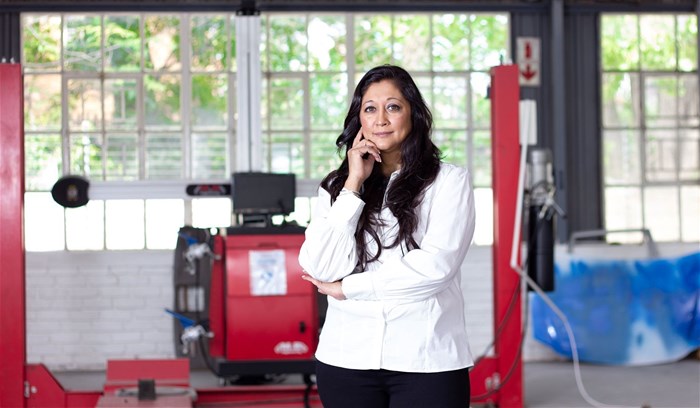Answering the critical need for additional training centres in the automotive aftermarket sector, a new skills training centre has opened in Edenvale, Gauteng called Mbuntu Training Services, specifically for spray painting.

Sambra member Nishma Deeplall Mbuntu Training Services | image supplied
Marcia Modiba, acting director for the South African Motor Body Repairers’ Association, a constituent association of the Retail Motor Industry Organisation (RMI), says Sambra welcome the addition of a new training centre which will address the critical skills shortage in the sector, particularly for spray painting, which has been identified as a scarce and critical skill for the past five consecutive years.
The centre, which is managed by Sambra member Nishma Deeplall, Mbuntu, is 100% Black women-owned and managed and is accredited by the QCTO and merSETA.
Marcia Modiba, Sambra acting national director says it is also empowering to see women starting to make significant inroads in what was previously a male-dominated environment. Deeplall has a real passion for training and skills development.
“Running my own training centre was my passion project. My sons have always prompted me to achieve my goals. The journey hasn’t always been easy, but it has certainly been worth it and this is a chance to ‘revive’ the trade of spray painting,” she explains.
“Mbuntu Training will be working with stakeholders in the industry and the department of education, as well as various SETAs to achieve this. We plan to host open days and offer career guidance to technical schools.
“To bridge the gap effectively, we need to embrace flexibility and innovation in line with continuous learning. It’s also important for us to explore new training methods that align with a new generation of students. What I love most is that we are learning along with the students daily – we are growing together.”
What it will offer
The centre will offer training, level testing and trade tests, including ARPL for the automotive spray painter and automotive body repairer trades. The apprenticeship training runs for three to four years and includes workplace exposure relating to the trade. In this way candidates are prepared for theory and practical knowledge in how to best mange in the designated field of work.
Since this is such a hands-on trade, 80% of the training is practical and 20% theoretical or classroom activities. All candidates will be given real-life exposure to the automotive field and have the equipment relevant to each trade as required by QCTO, NAMB and merSETA. Students are exposed to the tools and equipment that mimic a workshop.”
The training scope will be extended later this year to include training to motor and diesel mechanic trades. “SAMBRA welcome the new centre and hope there will be other similar centres opening nationally to address the skills shortage,” concludes Modiba.





























